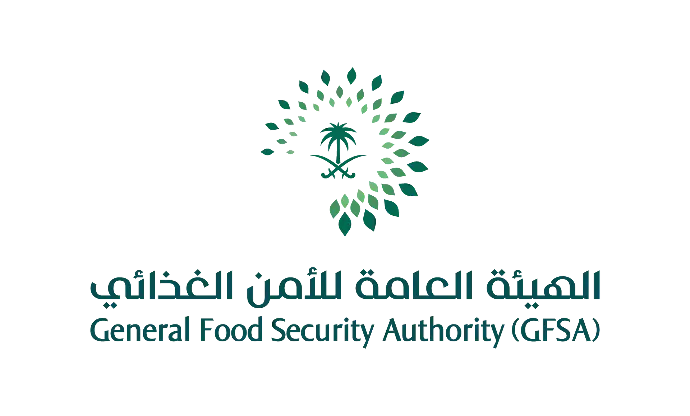The General Authority for Food Security is the competent authority in the Kingdom for food security and oversees the availability of all strategic goods. It aims to regulate, enhance, and develop food security, ensure the protection of national interests and national security, and monitor compliance with the regulations and plans issued regarding it.
General Food Security Authority (GFSA) was established by the Royal Decree No. (M/14) issued on 25/3/1392 AH, which was amended by the Royal Decree No. (M/3) issued on 12/2/1406 AH under the name (Grain Silos and Flour Mills Organization). Subsequently, the Council of Ministers issued decision No. (35) dated 27/1/1437 which approved taking the necessary measures to establish four joint-stock companies for flour mills, amending the name of the Grain Silos and Flour Mills Organization to be (Saudi Grains Organization) and reorganizing it. Therefore, the Council of Ministers’ decision No. (328) was issued on 2/8/1437 AH to approve the establishment of the Saudi Grains Organization and assign the management, operation and development of the silos activity to the Organization, in addition to the tasks of organizing, controlling and supervising the activity of flour-producing mills. During this period, the import of feed barley was assigned to the Organization in implementation of the Royal Decree No. (40657) issued on 19/8/1437 AH, starting from October 2016 AD, and that is through (28) storage plants distributed among the Saudi ports to distribute and sell barley along with maintaining an appropriate strategic reserve to face emergency circumstances, until the Council of Ministers decision No. (197) dated 24/3/1442 AH was issued to assign the import and sale of barley to the private sector pursuant to the regulations contained in the decision. Hereafter, the Council of Ministers’ decision No. (440) dated 24/6/1444 AH was issued to approve the transformation of the Saudi Grains Organization into an authority under the name (General Food Security Authority) and its continuance in operating the storage silos, including the purchase of wheat and the maintenance of strategic stock, until a decision is issued to assign it to the Saudi Agricultural and Livestock Investment Company (SALIC), in addition to regulating, developing and enhancing food security in a manner that ensures the protection of the State’s vital interests and its national security, as well as monitoring the compliance with the regulations and plans issued in this regard.
-
Proposing draft regulations, rules, and policies related to its jurisdiction, and suggesting amendments to the existing ones.
-
Reviewing, developing, and updating the food security strategy as needed, and preparing and following up on its implementation plan.
-
Coordination with relevant authorities to develop policies and plans for responding to food security-related emergencies, recovering from them, managing them, and overseeing them.
-
Design and management of an early warning system.
-
Developing plans and policies for strategic storage in relation to the food security system.
-
Setting the standards, procedures, regulations, and requirements for the storage of strategic goods, monitoring compliance with them, and updating them.
-
Setting the necessary regulations and conditions for issuing licenses according to its jurisdiction.
-
Monitoring the necessary data to support analyses and proactive detection of crises related to the food security system, collecting it, and taking the necessary measures to avoid those crises.
-
Monitoring the targeted goods under the strategic storage plans related to the food security system stored in the private sector and the mechanisms for their rotation and use.
-
Setting policies and plans to measure levels of food loss and waste at all stages of the value chain, overseeing their implementation, determining targets for reducing them and mechanisms for recycling, and developing related programs.
-
Develop awareness programs to reduce food loss and waste in coordination with relevant authorities, and monitor their implementation.
-
Electronic linkage with governmental and non-governmental entities, in order to obtain information and data related to their jurisdiction and performance of their tasks.
The Public Authority for Food Security provides its services by enhancing the efforts of the food security system and the resilience to face food security-related risks and emergencies.
- Supporting research and studies in the fields of food security.
- Monitoring compliance with regulations, rules, and policies related to the food security system.
- Coordination with all parties to organize efforts related to the food security system.
- The electronic linkage between government and non-government entities to obtain information and data related to food security sectors.
- Developing awareness programs to reduce loss and waste in coordination with the relevant authorities.


Our Vision:
Leading food security efforts to ensure the affordability, sustainability and reliability of food commodities related to strategic stocks.

Our Mission:
Supporting the development of the food commodities sector related to strategic stocks through efficient organization, reliable market information and analysis and effective emergency response.
- Sustainability: Promoting commitment to food security and environmental responsibility for future generations.
- Response: Responding to local and regional changes and crises regarding food security.
- Effectiveness: the ability to achieve the objectives assigned to the authority.
- Responsibility: Credit for organizing activities and developing the food security sector in the Kingdom.
- Cooperation: Cooperation with various entities locally and internationally in order to achieve the authority's goals.
- Leadership: The pursuit of establishing pioneering practices in the field of food security locally and globally.
 Voice Commands
Voice Commands


